What will the Biden administration’s “30 by 30” conservation initiative mean for ocean areas in the Mid-Atlantic? What can trace genetic materials floating in the water teach us about turtle populations in New Jersey’s coastal lakes? These are among the many questions that eight Monmouth University student researchers will explore this summer with the support of UCI Heidi Lynn Sculthorpe Scholars grants and research assistantships.
The Heidi Lynn Sculthorpe Scholars Program offers competitive grant funding for students and faculty mentors of all disciplines whose work furthers the goals and mission of the UCI. The program supports hands-on research projects that provide real world experience to students while helping make a positive impact in coastal communities. For the first time this year, a grant will support one participant in the Monmouth University Provost’s Summer Scholars Living and Learning Community, which enables students to live on campus while conducting their research. The Summer Scholars faculty coordinator is Endowed Associate Professor of Marine Science Jason Adolf of the Department of Biology and the UCI.
The research efforts listed below will kick off in June.
eDNA as a Tool for Surveying Turtles in New Jersey’s Coastal Lakes
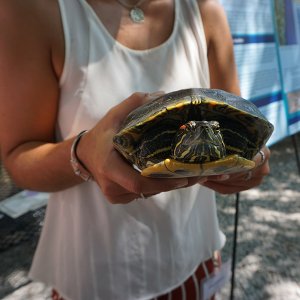 Student: Delaney Mestey-Jones
Student: Delaney Mestey-Jones
Faculty Mentor: Megan Phifer-Rixey, UCI Marine Genetics Faculty Fellow
The student will test the use of environmental DNA (eDNA) as a tool for detecting the presence of turtles in coastal lakes. In addition, the student will help develop the approach for use in teaching labs for undergraduate and high school students.
The Effect Hurricanes Have on Sustainable Tourism in the Bahamas and New Jersey
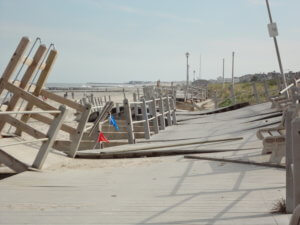 Students: Catherine Melman-Kenny and Sabria Smith
Students: Catherine Melman-Kenny and Sabria Smith
Faculty Mentor: Ken Mitchell, Chair, Department of Political Science & Sociology
The researchers will analyze the experiences of New Jersey after Hurricane Sandy and the Bahamas after Hurricane Dorian to determine how differences in policy, sustainable infrastructure, planning and protocols influenced the recoveries of their tourism industries.
Exploring Salt Tolerances of Lichens in Coastal Ecosystems
Student: Emily Vasquez (UCI/Provost Summer Scholar)
Faculty Mentor: Associate Professor Pedram Daneshgar, Department of Biology
This study will test the salt tolerance of lichens growing in areas by the ocean in order to make predictions of how climate change and coastal flooding may alter lichen abundance and ecosystems in the future. Lichens in the field will be studied and digitally mapped, and different types of lichens will be grown in a greenhouse and subjected to saltwater exposure tests.
Female Labor Force Participation and Care of Children in Coastal New Jersey
Student: James T. Allan
Faculty Mentors: Assistant Professor Katerine Ramirez, Department of Economics, Finance, and Real Estate; Assistant Professor Geoffrey Fouad, Department of History & Anthropology
Drawing on federal and state data, the project will probe whether commute times from daycare facilities affect the labor force participation and job choices of women in Jersey Shore communities, and whether those figures differ from their partners’ by marital status or number and age of children.
New Jersey Coastal Resilience Collaborative Policy Analyst
Student: Samantha Pawlik (Research Assistant)
Faculty Mentor: UCI Associate Director Thomas Herrington and Director Tony MacDonald
The New Jersey Coastal Resilience Collaborative (NJCRC) is a partnership of stakeholders and interested parties from all sectors, including universities, nonprofit and for-profit groups, national estuary programs and reserves, advocacy organizations, state agencies and regional planning groups, established to foster sustainable and resilient coastal communities and ecosystems by generating informed action. The student will review present and proposed changes to the New Jersey coastal zone land use management rules, prepare a brief on the impact of the proposed rules, and aid the NJCRC in preparing recommended changes to the proposed rules for consideration by the state.
The “30 by 30” Initiative: Confronting the Threats of Biodiversity Loss and Climate Change
Student: Kyra Velock (Research Assistant)
Faculty Mentor: Randall S. Abate, Rechnitz Family/UCI Endowed Chair in Marine and Environmental Law and Policy
The “30 by 30” initiative (also called the America the Beautiful initiative) seeks to conserve and protect 30% of U.S. land and ocean areas by the year 2030. The student will focus primarily on ocean protection, presenting information on the political and economic challenges, and environmental benefits, associated with reaching this goal, and legal tools that will be essential for achieving it such as marine spatial planning and marine protected areas.
A Win-Win for Offshore Wind Energy in the Mid-Atlantic: Science and Policy Options to Mitigate Harm and Maximize Benefits to Marine Species and Biodiversity
Student: Riya Ajmera
Faculty Mentor: Randall S. Abate, Rechnitz Family/UCI Endowed Chair in Marine and Environmental Law and Policy
The student will conduct research and interview experts involved in the Mid-Atlantic offshore wind regulatory landscape, including representatives from state and regional regulatory bodies, the offshore wind industry, environmental groups, marine scientists, the commercial fishing industry, and Native American leaders. The student will prepare a white paper examining science-based policy options that advance a “win-win” goal of promoting offshore wind development in a way that enhances protection of the marine environment through improved data and management, including marine protected areas and other area-based management tools. The paper will address the nature and scope of risks to the Mid-Atlantic marine environment and propose possible solutions to mitigate harm to marine species and promote marine biodiversity.
Fall Funding Opportunities
Monmouth University students and faculty are invited to apply now for fall Heidi Lynn Sculthorpe Scholars funding opportunities. Fall grants available include:
- Faculty Enrichment Grants for the enhancement of existing curriculum, new curriculum development, research and scholarship, and team-teaching opportunities. Proposals will be accepted through Aug. 13, 2021.
- Mini-Grants are also available to faculty and students for conference fees, symposia, guest speaker honoraria, equipment and supplies, and other needs to be determined on a case-by-case-basis. Applications can be submitted at any time and are reviewed on a rolling basis.
Those interested may apply via the UCI Funding Opportunities page on the MyMU Portal (Monmouth University sign-in credentials required). For more information, contact UCI Associate Director Thomas Herrington at therring@monmouth.edu.
These opportunities have been made possible through the generous support of many corporate and private donors. If you would like to make a tax-deductible gift to the UCI, please use our Give a Gift Now form.

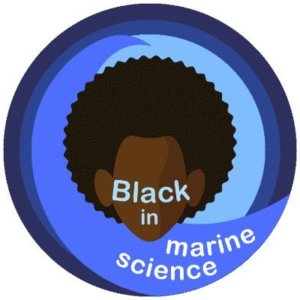
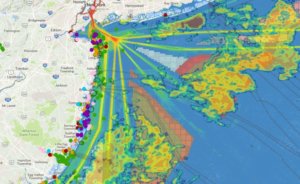 Are you a newcomer to the
Are you a newcomer to the  The Urban Coast Institute (UCI)
The Urban Coast Institute (UCI) 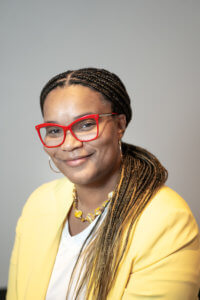 Kanesha Jones has over 17 years of experience driving quality improvement, continuous improvement, and operational excellence in the pharmaceutical industry. She is a graduate of the Marine Academy of Science and Technology (MAST) and received her bachelor of science degree in biology with a concentration in molecular cell physiology from Monmouth University.
Kanesha Jones has over 17 years of experience driving quality improvement, continuous improvement, and operational excellence in the pharmaceutical industry. She is a graduate of the Marine Academy of Science and Technology (MAST) and received her bachelor of science degree in biology with a concentration in molecular cell physiology from Monmouth University.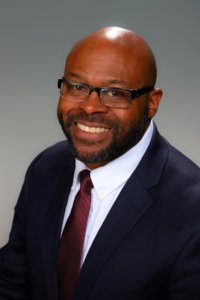 Dr. Marion McClary received his B.S. in marine science from Richard Stockton State College of New Jersey, now Stockton University, in 1990 and received his Ph.D. in zoology from Duke University in 1997. Dr. McClary serves on the Northern New Jersey Community Foundation Environmental Advisory Board, the Association of New Jersey Environmental Commissions Board of Trustees, and the Hackensack River Greenway Advisory Board. He is also chair of the Faculty Athletics Representatives (FARs) of the North East Conference (NEC) and is a member of the NCAA Division I Committee on Academics.
Dr. Marion McClary received his B.S. in marine science from Richard Stockton State College of New Jersey, now Stockton University, in 1990 and received his Ph.D. in zoology from Duke University in 1997. Dr. McClary serves on the Northern New Jersey Community Foundation Environmental Advisory Board, the Association of New Jersey Environmental Commissions Board of Trustees, and the Hackensack River Greenway Advisory Board. He is also chair of the Faculty Athletics Representatives (FARs) of the North East Conference (NEC) and is a member of the NCAA Division I Committee on Academics.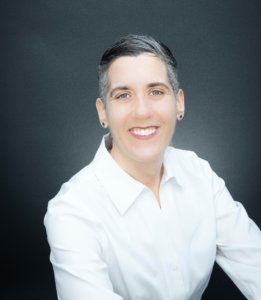 Kris Ohleth has worked in the offshore wind industry for over 15 years, since the days of the industry’s inception in the U.S. Holding senior positions with offshore wind developers, NGOs, and state agencies, she has gained critical insights into the policy and regulations that shape offshore wind activities at the state, regional, and federal levels. She has extensive experience working with offshore wind stakeholders and has expert knowledge of such engagements, having worked on offshore wind and ocean policy issues at all levels.
Kris Ohleth has worked in the offshore wind industry for over 15 years, since the days of the industry’s inception in the U.S. Holding senior positions with offshore wind developers, NGOs, and state agencies, she has gained critical insights into the policy and regulations that shape offshore wind activities at the state, regional, and federal levels. She has extensive experience working with offshore wind stakeholders and has expert knowledge of such engagements, having worked on offshore wind and ocean policy issues at all levels.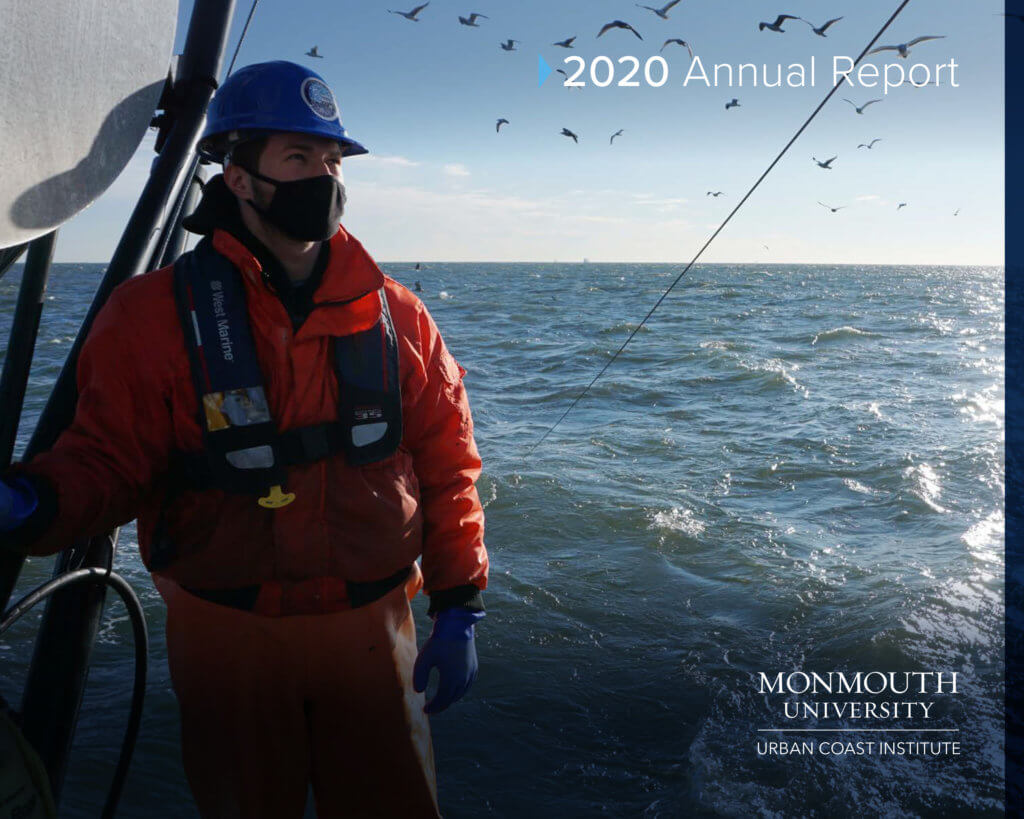
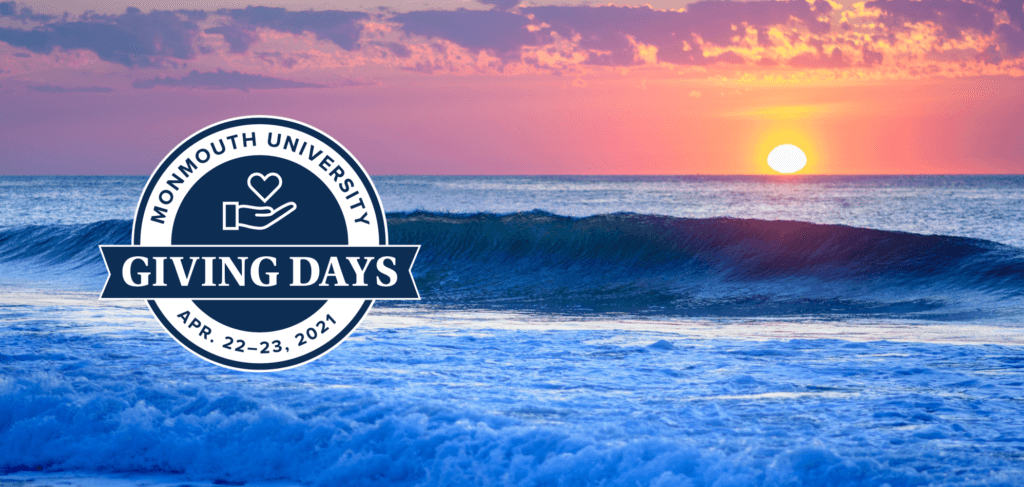
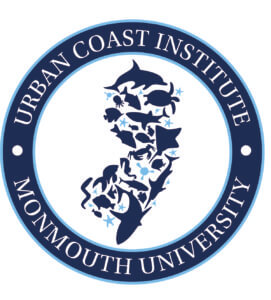 In celebration of the UCI’s 15th anniversary, we’re counting down the 15 days until Earth Day, April 22 – the kickoff of Monmouth University’s Giving Days 2021. Gifts to the UCI support student research and projects that explore and protect our coastal environments.
In celebration of the UCI’s 15th anniversary, we’re counting down the 15 days until Earth Day, April 22 – the kickoff of Monmouth University’s Giving Days 2021. Gifts to the UCI support student research and projects that explore and protect our coastal environments. ABSTRACT: The divided views on fisheries management have greater implications than simply a difference in science or opinion. In the face of global environmental changes, such as climate change and a decrease of biodiversity, the failure of fisheries management causes catastrophic consequences on human well-being, including impacts on food security, ocean health, and economic opportunities among coastal communities. The urgent call for new approaches, such as the Blue Economy and Sustainable Development, inspires hope, but there are concerns about those platforms: Do those in power intend to change the way fisheries management is structured now? Is it enough to promote conservation and sustainability? If oceans are truly the ‘common heritage of humanity’ and belong to everyone, how do we ensure our policies reflect the diverse relationships with oceans, so that everyone has access to and benefits from the oceans equitably?
ABSTRACT: The divided views on fisheries management have greater implications than simply a difference in science or opinion. In the face of global environmental changes, such as climate change and a decrease of biodiversity, the failure of fisheries management causes catastrophic consequences on human well-being, including impacts on food security, ocean health, and economic opportunities among coastal communities. The urgent call for new approaches, such as the Blue Economy and Sustainable Development, inspires hope, but there are concerns about those platforms: Do those in power intend to change the way fisheries management is structured now? Is it enough to promote conservation and sustainability? If oceans are truly the ‘common heritage of humanity’ and belong to everyone, how do we ensure our policies reflect the diverse relationships with oceans, so that everyone has access to and benefits from the oceans equitably?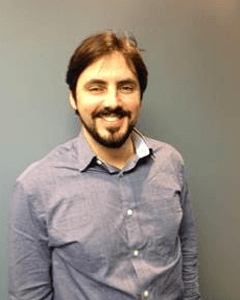 ABSTRACT: About 90% of the world’s 120 million capture fishers are involved in small-scale fishing (SSF), making SSF the largest creator of marine jobs. Seeking to provide guidance on how to promote a more sustainable SSF sector, the Food and Agriculture Organization of the United Nations published the Voluntary Guidelines for Sustainable Small-Scale Fisheries. Building on the connection between environmental sustainability and human rights in the small-scale fisheries context, ELI developed the Small Scale-Fisheries Law and Governance Toolkit. The Toolkit identifies useful regulatory approaches for SSF governance, and model legal language. Many fisheries laws have inserted the concept of “sustainability” without elaborating on how to translate that concept into governance institutions and regulatory procedures. The Toolkit focuses on creating and implementing fisheries co-management systems, along with two basic governance elements that strengthen co-management: (1) exclusive fishing rights for SSF communities, and (2) the creation of exclusive zones for SSF. Developing model legal language, however, is only one small step. For any policy to be successfully translated into regulatory action, lawmakers need to be knowledgeable about the challenges and opportunities of SSF governance, which is often not the case.
ABSTRACT: About 90% of the world’s 120 million capture fishers are involved in small-scale fishing (SSF), making SSF the largest creator of marine jobs. Seeking to provide guidance on how to promote a more sustainable SSF sector, the Food and Agriculture Organization of the United Nations published the Voluntary Guidelines for Sustainable Small-Scale Fisheries. Building on the connection between environmental sustainability and human rights in the small-scale fisheries context, ELI developed the Small Scale-Fisheries Law and Governance Toolkit. The Toolkit identifies useful regulatory approaches for SSF governance, and model legal language. Many fisheries laws have inserted the concept of “sustainability” without elaborating on how to translate that concept into governance institutions and regulatory procedures. The Toolkit focuses on creating and implementing fisheries co-management systems, along with two basic governance elements that strengthen co-management: (1) exclusive fishing rights for SSF communities, and (2) the creation of exclusive zones for SSF. Developing model legal language, however, is only one small step. For any policy to be successfully translated into regulatory action, lawmakers need to be knowledgeable about the challenges and opportunities of SSF governance, which is often not the case. ABSTRACT: The Indian Ocean region is rich in marine biodiversity including significant fish stocks. The region has one of the fastest growing economies in the world, led in part by a focus on blue economy goals. Yet as Indian Ocean nations seek to expand their fisheries sectors, they face several challenges including illegal fishing. Confronting this problem is critical if blue growth is to be achieved in sustainable ways, and if food security and livelihoods are to be secured. Despite the common focus on the blue economy, there are no pan-regional legal agreements and few whole-of-region initiatives. This provides an opportunity for the Indian Ocean Rim Association to play a leading role, but the way forward is not clear. This presentation explains the regional governance landscape in the Indian Ocean, explores the role that the Indian Ocean Rim Association can play in harmonizing fisheries regulation, and identifies ways in which the pressing problem of illegal fishing can be addressed.
ABSTRACT: The Indian Ocean region is rich in marine biodiversity including significant fish stocks. The region has one of the fastest growing economies in the world, led in part by a focus on blue economy goals. Yet as Indian Ocean nations seek to expand their fisheries sectors, they face several challenges including illegal fishing. Confronting this problem is critical if blue growth is to be achieved in sustainable ways, and if food security and livelihoods are to be secured. Despite the common focus on the blue economy, there are no pan-regional legal agreements and few whole-of-region initiatives. This provides an opportunity for the Indian Ocean Rim Association to play a leading role, but the way forward is not clear. This presentation explains the regional governance landscape in the Indian Ocean, explores the role that the Indian Ocean Rim Association can play in harmonizing fisheries regulation, and identifies ways in which the pressing problem of illegal fishing can be addressed.